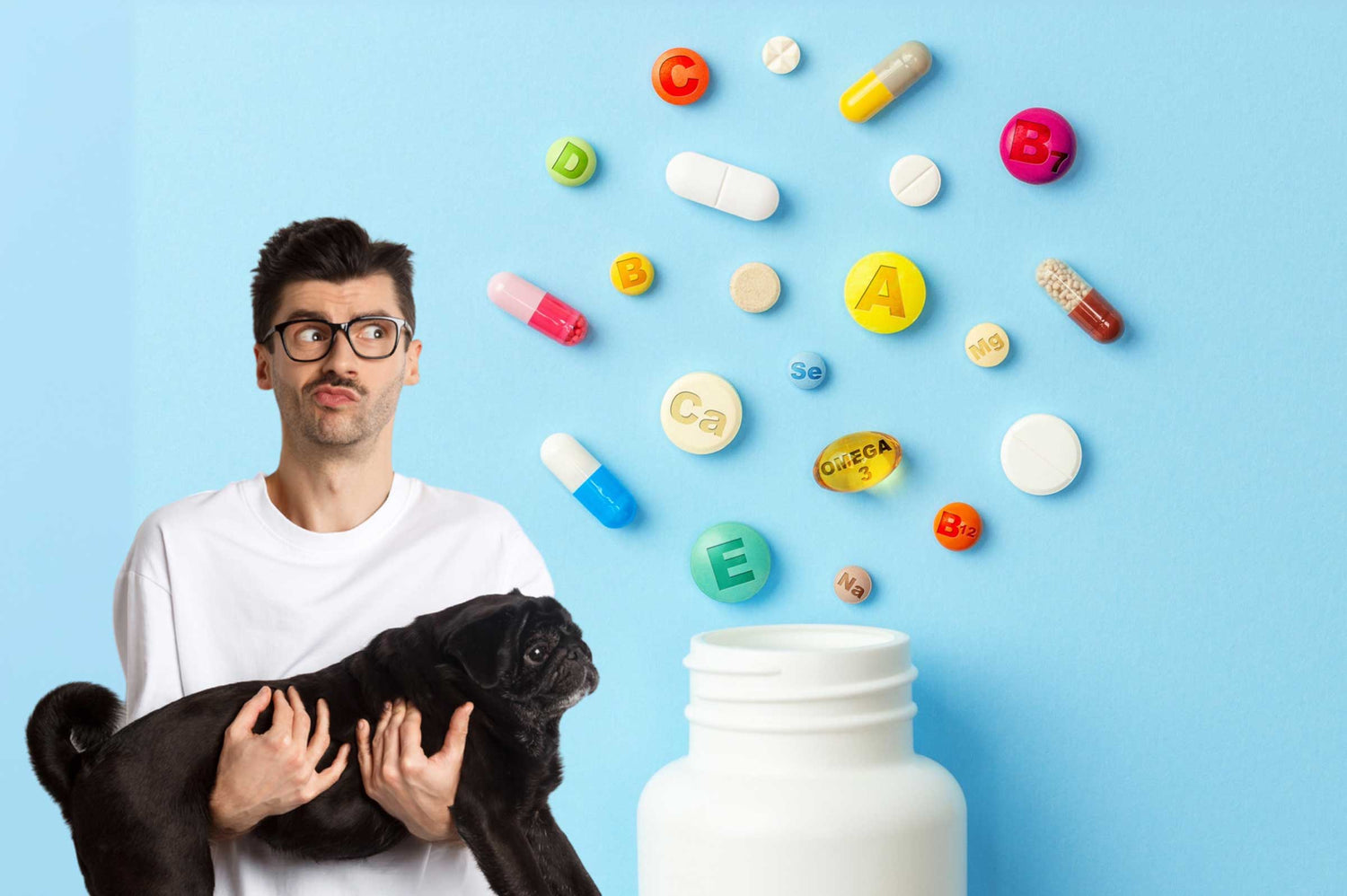Pet owners are increasingly turning to dietary supplements to enhance their furry friends' health and well-being. However, the world of pet nutrition is rife with misconceptions that can lead to misguided choices. In this comprehensive guide, we aim to debunk common myths surrounding pet dietary supplements, helping you make informed decisions for your beloved companion.
Myth 1: Pets Don't Need Supplements if They Eat Commercial Food
Many pet owners believe that feeding their pets high-quality commercial food eliminates the need for additional supplements. While commercial pet foods are designed to meet general nutritional standards, they may not address specific individual needs. Factors such as age, breed, medical conditions, and lifestyle can influence your pet's unique nutritional requirements. For instance, senior pets might need extra joint support, while active breeds could benefit from supplements that promote muscle health.
Moreover, the nutrient content in commercial pet food can degrade over time due to processing and storage. Essential nutrients like omega-3 fatty acids and certain vitamins may lose potency, leaving your pet with less than optimal nutrition. Incorporating high-quality pet dietary supplements can fill these nutritional gaps, ensuring your pet receives all the essential nutrients for optimal health and vitality. The AKC recommends specific vitamins to keep your dog healthy and happy.
Myth 2: All Pet Supplements Are Created Equal
Another common misconception is that all pet supplements offer the same quality and efficacy. The pet supplement market is vast and varied, with products differing significantly in ingredient quality, purity, and bioavailability. Some supplements may contain fillers, artificial additives, or inconsistent ingredient concentrations, which can affect their effectiveness and even pose health risks.
Choosing reputable brands that prioritize quality control is crucial. Look for pet supplements that have been tested for purity and potency, preferably those that are third-party certified. Supplements formulated based on scientific research and endorsed by veterinarians are more likely to provide tangible health benefits. Investing in high-quality pet supplements ensures that your pet receives safe, effective support tailored to their specific health needs.
Myth 3: Human Supplements Are Safe for Pets
It's a dangerous assumption that human supplements are suitable for pets. Pets have different metabolic rates and sensitivities, and ingredients safe for humans can be harmful or even toxic to animals. For example, xylitol, a common sweetener found in some human supplements, is highly toxic to dogs. Similarly, certain vitamins and minerals in human dosages can lead to poisoning in pets.
Always opt for supplements specifically formulated for your pet's species. Pet-specific supplements consider the appropriate dosages and ingredient safety profiles for animals. Consulting your veterinarian before introducing any new supplement is essential to prevent adverse reactions and ensure compatibility with your pet's existing diet and medications.
Myth 4: Supplements Can Replace a Balanced Diet
Some pet owners mistakenly believe that supplements can compensate for a poor diet. However, dietary supplements are meant to complement, not replace, a nutritious and balanced diet. Relying solely on supplements without providing quality pet food can lead to nutritional deficiencies, weakened immunity, and other health problems.
A balanced diet provides the foundation of essential macronutrients—proteins, fats, and carbohydrates—as well as vital micronutrients like vitamins and minerals. Supplements should be used to address specific deficiencies or health concerns identified by a veterinarian. Ensuring your pet receives a wholesome diet along with targeted supplements promotes optimal health, energy levels, and longevity.
Myth 5: Natural Supplements Have No Side Effects
The belief that natural equates to safe is a common myth in pet nutrition. Natural pet supplements, while derived from natural sources, can still cause side effects or interact negatively with other medications. For instance, excessive intake of natural herbs like garlic can be toxic to dogs and cats, leading to anemia and other serious health issues.
It's important to approach natural pet supplements with the same caution as synthetic ones. Always read labels, understand the potential side effects, and follow the dosage instructions provided by the supplement manufacturer.
Conclusion
Navigating the world of pet dietary supplements can be challenging, but dispelling these common myths is a significant first step toward ensuring your pet's optimal health. By understanding the facts and consulting with veterinary professionals, you can make informed decisions that enhance your pet's quality of life. Remember, supplements are tools to support your pet's well-being, not cure-all solutions.
If you're seeking high-quality, veterinarian-recommended supplements, consider VetSmart Formulas. Their products are specifically designed to meet the unique nutritional needs of pets, using natural ingredients backed by scientific research. Take the next step in supporting your pet's health—explore VetSmart Formulas' range of supplements today and give your furry friend the care they deserve.










